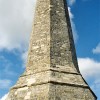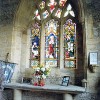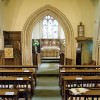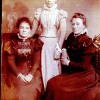Who rules England: the King or Parliament? That was the question setting the country alight in the middle of the 17th century. Both had their armies ready to slog it out to the death and it seems either side gave scant regard for peoples land, crops or property.
Here in Dorset and some other counties the less politicised among the population got thoroughly fed up with Charlie and Ollie’s gangs trampling down their crops, stealing their livestock and causing mayhem in their towns and villages. So they decided to form their own gang, becoming known as the Clubmen because of the crudity of their weapons: clubs, pitchforks and scythes in the main.
The Clubmen owed allegiance to neither side and were made up of a ragbag of yeoman, farmers, and villagers with a few parsons shouting orders from the sidelines. They were intent only to preserve the peace in their communities, save their land, livestock and possessions and to put an end to the pillaging carried out by the troops of the opposing camps. A simple white cockade was their uniform and they marched with banners proclaiming: ‘If you offer to plunder or take our cattle, be assured we will bid you battle.’
Battle they did. For their trouble, they usually came off worse. To Cromwell, who first came upon them at Duncliffe Hill a little to the west of Shaftesbury, they were an annoying distraction who posed no real threat to his plans or his men. In August 1645 the Clubmen gathered on Hambledon Hill – between 2,000 and 4,000 angry citizens. Led by the Revd Bravel of Compton Abbas , they were ready to do battle against whatever Cromwell threw at them.
Earlier, during the siege of Sherborne Castle, General Fairfax ordered the arrest of about 50 of the Clubmen’s leaders while they were holding a meeting at Shaftesbury. On the 4th of August 1645 Cromwell, having successfully laid siege to Sherborne Castle, had an army of about one thousand men freed-up.
These Parliamentarian soldiers were far fewer in number but better organized, armed and commanded. They attacked the Clubmen, including four members of the clergy ,from the rear most of them fled. Those left on the hill were chased by about 50 of Cromwell’s dragoons.
Hambledon Hill was to be the Clubmen’s last stand in Dorset. The dragoons rounded up about 400 Clubmen off the hill and locked them up in St. Mary’s church at Iwerne Courtney, leaving them to stew overnight. The next day Oliver Cromwell himself having already decided they were “poor silly creatures” came and lectured them and then to everyone’s surprise let them go home including the “malignant priests, who were principle stirrers up of the people to these tumultuous assemblies.”
Joshua Sprigg, who was General Fairfax’s chaplain, is quoted as saying; “If this had not been crushed in the egg, it had on an instant run all over the Kingdom and might have been destructive to the Parliament”. In some people’s minds then, the Clubmen were a force to be reckoned with after all.



